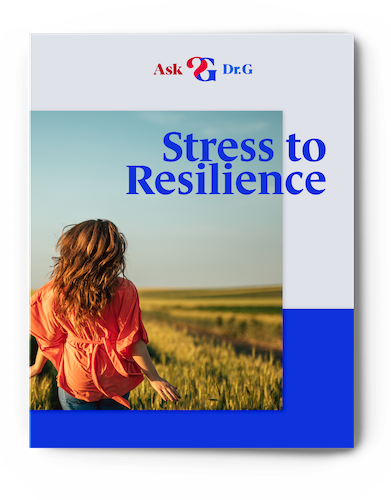 What is your number one tip to help de-escalate an autistic meltdown BEFORE it escalates?
What is your number one tip to help de-escalate an autistic meltdown BEFORE it escalates?
Katrina, from IN
Wow, Katrina, you ask the easy questions, right? 😉
Not only are no two kids alike, I’d venture to say that no two autistic meltdowns are exactly alike! So I’m going to give a top 5 rather than one. There will certainly be families for whom none of these work, but I’m hoping at least one will give you some direction.
For all the parents out there without an autistic kiddo, let me say that these work for garden-variety wishing-the-floor-would-swallow-you-up-who’s-kid-is-this-anyway tantrums that every child can throw!
In no particular order…
- Distraction! I’m a big fan of this, from toddlers to teens. If we can toss a bright, shiny object (or the metaphorical equivalent) out to grab that kiddo’s attention, we may be able to derail a meltdown before it really gets rolling. This might be accomplished with music, a “lovey” – any comfort item from a pacifier to a stuffed animal to the TV remote control – a beautiful view, whatever pleases your child. Try to avoid food as a go-to distraction, though occasionally that the best option.
- Physical activity (besides the tantrum itself). That energy is coming out of your child like a runaway train. Can it be channeled into jumping jacks or dancing or a punching bag or cartwheel? This is a great way to release that pressure in a way that brings praise instead of negativity. Just ask any drill sergeant.
- Separation. A change of venue, if you can make it happen, sometimes defuses the situation. Whether that means getting a child on their own away from a larger audience or just means that it was something about that particular place that set them off, a change of scene can make a big difference.
- Reflection. Dr. T. Berry Brazelton has some great advice about this when dealing with toddlers that I think can work at other ages. Reflect back, in nearly the same tone and volume, with just one or two words, what the child is saying. “You’re mad!” “That hurts!” “No Mommy!” This can pleasantly startle a child, he explains, into noticing that his needs are, if not met, at least heard and understood. I’ve tried it, and it’s surprisingly (to me, at least) effective!
- Empathy. Different than reflection, a child doesn’t have to immediately feel our empathy for it to work. By this I mean, we won’t catch all the meltdowns before they spiral out of control. Allow (through the frustration or embarrassment) yourself to feel empathy – for the child who is struggling, for yourself, and for your other kids. This too shall pass, and there will be smiles again eventually.
What have you tried that’s worked to stop a meltdown before it gets out of control?




4 thoughts on “Meltdown: Not Just an Autistic Behavior”
I’d add one more category, which is Prevention. Kids are much more likely to have meltdowns when we push them beyond their limits. When your kid is tired, hungry or rushed, he or she is likely to fly off the handle at the least little provocation. While you can’t completely avoid this situation, it may be helpful to recognize when circumstances have led your child to the danger zone and NOT pick that time to make a point or be strict.
You’re absolutely right, Melissa – when I’m tired, hungry or rushed I’m much more likely to fly off the handle as well! So empathy as well as prevention are great tools.
I have diffused many potential meltdowns w distraction!
It’s a classic for a reason, right Aviva?
Comments are closed.